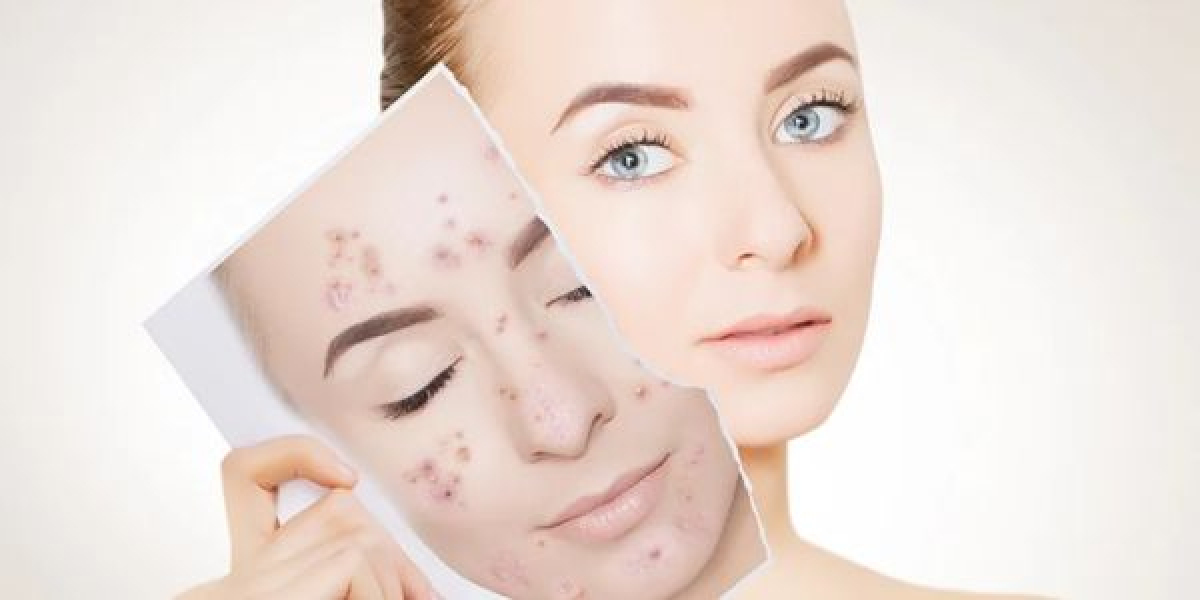Whitening night cream have become a staple in the skincare routines of individuals seeking a more radiant and even skin tone. These products are specifically formulated to lighten dark spots, reduce hyperpigmentation, and give the skin a natural glow. But what exactly is the science behind these creams, and how do they work to lighten the skin overnight? In this article, we’ll explore the mechanisms, ingredients, and effectiveness of whitening night creams.
Understanding Skin Pigmentation: Why Does Skin Darken?
Before diving into how whitening creams work, it's important to understand why skin pigmentation occurs in the first place. Skin color is determined by melanin, a pigment produced by melanocytes, specialized skin cells. The more melanin your skin produces, the darker your skin tone.
There are several factors that contribute to increased melanin production, leading to dark spots, uneven skin tone, and hyperpigmentation. These include:
- Sun Exposure: UV rays trigger melanin production as a defense mechanism.
- Hormonal Changes: Conditions such as pregnancy or the use of birth control can lead to melasma.
- Aging: Over time, melanin production can become uneven, resulting in age spots.
- Inflammation or Injury: Acne scars or other skin injuries can lead to post-inflammatory hyperpigmentation (PIH).
Whitening night creams are designed to address these issues by controlling melanin production, promoting skin cell turnover, and offering long-term lightening effects.
How Do Whitening Night Creams Work?
Whitening night creams typically work in three major ways: inhibiting melanin production, exfoliating the skin, and hydrating the skin for regeneration.
1. Inhibition of Melanin Production
One of the key functions of whitening creams is to prevent the overproduction of melanin. Several ingredients in whitening night creams work by inhibiting tyrosinase, an enzyme that plays a crucial role in melanin synthesis. These ingredients include:
- Hydroquinone: One of the most effective ingredients for skin lightening, hydroquinone disrupts the melanin-producing pathways, leading to a decrease in dark spots and overall pigmentation.
- Kojic Acid: Derived from fungi, kojic acid prevents tyrosinase activation and is known for its ability to lighten dark spots.
- Arbutin: A natural extract from bearberry plants, arbutin also inhibits melanin production.
- Vitamin C: This antioxidant not only brightens the skin but also interferes with melanin production, reducing hyperpigmentation.
2. Exfoliation for Brighter Skin
Another crucial mechanism in whitening creams is exfoliation. By removing dead skin cells, these creams reveal newer, healthier skin underneath. Exfoliation helps to lighten pigmentation and create a smoother, more radiant complexion. Common exfoliating agents include:
- Alpha Hydroxy Acids (AHAs): Glycolic acid and lactic acid are popular AHAs used to dissolve the bonds between dead skin cells, promoting cell turnover.
- Beta Hydroxy Acids (BHAs): Salicylic acid is a common BHA that penetrates deep into pores to clear out debris, reducing dark spots from acne scars.
Regular exfoliation with whitening night creams ensures that skin cells are renewed, allowing lightening agents to work more effectively on fresh, new skin.
3. Hydration and Regeneration
Whitening creams also focus on keeping the skin hydrated and promoting cell regeneration during sleep. Hydration is essential for ensuring that the skin barrier remains intact, reducing inflammation and preventing further damage that could cause hyperpigmentation. Common hydrating ingredients include:
- Hyaluronic Acid: This molecule attracts water to the skin, keeping it plump and moisturized.
- Glycerin: A humectant that draws moisture from the air, glycerin helps in maintaining the skin's hydration levels.
- Niacinamide (Vitamin B3): Not only does niacinamide improve skin elasticity, but it also helps reduce pigmentation and supports the skin barrier, preventing moisture loss.
At night, your skin is in repair mode, making it the perfect time to use creams that aid in the regeneration of damaged skin cells. By promoting cell turnover and reducing oxidative stress, whitening night creams help to gradually lighten the skin over time.
Key Ingredients in Whitening Night Creams
While there are numerous whitening creams on the market, the following ingredients are often found in the most effective formulations:
- Licorice Extract: Known for its anti-inflammatory properties, licorice extract helps lighten dark spots and prevent further pigmentation by inhibiting melanin production.
- Mulberry Extract: Mulberry extract contains arbutin, which helps slow down the production of melanin and contributes to an even skin tone.
- Retinoids: These derivatives of vitamin A accelerate skin turnover, pushing pigmented cells to the surface faster where they can be shed.
- Peptides: By boosting collagen production, peptides support skin firmness and elasticity, which helps create a more uniform skin tone over time.
Are Whitening Night Creams Safe?
The safety of whitening night creams depends largely on the formulation. Some ingredients, such as hydroquinone, can be too harsh for certain skin types if used in high concentrations or for long periods. It is important to follow the recommended usage guidelines and consult with a dermatologist if you have sensitive skin or existing skin conditions.
Natural lightening agents like kojic acid, vitamin C, and licorice extract are generally safer and gentler alternatives to stronger chemicals like hydroquinone. Always ensure that you perform a patch test before using any new product, especially if it contains strong exfoliants or skin lighteners.
How to Maximize Results with Whitening Night Creams
To achieve the best results, it’s essential to use whitening night creams correctly. Here are some tips to maximize their effectiveness:
- Consistency is Key: Use the cream regularly as part of your nighttime skincare routine. Results may take several weeks to become visible.
- Sun Protection: During the day, protect your skin with sunscreen, as UV rays can reverse the effects of whitening creams and even worsen pigmentation.
- Complement with a Healthy Lifestyle: Drinking enough water, eating a balanced diet, and getting enough sleep all contribute to healthy, glowing skin.
- Layering Products: If you are using other products like serums or toners, make sure they are compatible with your whitening night cream to avoid irritation or reactions.
Conclusion: Is a Whitening Night Cream Right for You?
Whitening night creams are an effective solution for individuals looking to lighten dark spots, even out their complexion, and achieve a brighter skin tone. By targeting melanin production, promoting exfoliation, and enhancing hydration, these creams offer a multi-faceted approach to skin lightening. However, it’s important to choose products with ingredients that suit your skin type and concerns.
For long-term success, pair your whitening night cream with a consistent skincare routine, sun protection, and a healthy lifestyle. In time, you’ll begin to notice smoother, brighter, and more even skin.
If you want to more information about Then, You Can Check Out- Devriz Healthcare









